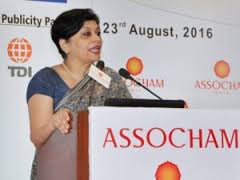 The CBDT has issued an order endorsing the legal validity of the e-declarations made under the ongoing domestic black money window, known as the Income Declaration Scheme (IDS).
The CBDT has issued an order endorsing the legal validity of the e-declarations made under the ongoing domestic black money window, known as the Income Declaration Scheme (IDS).
With only a month left for the IDS to close on September 30, the Central Board of Direct Taxes (CBDT) said for those entities who make declarations of their domestic untaxed assets in the online mode, the Commissioner rank officer of its Central Processing Centre (CPC) in Bengaluru will be “deemed” as the authority for receiving such declarations under the relevant sections of the I-T Act.
“In continuation to Circular No 19 of 2016, dated 25th May, 2016, the Commissioner of Income-tax, Centralised Processing Centre, headquartered at Bengaluru shall exercise the concurrent powers and functions in respect of the declaration referred to in section 183 of the Finance Act, 2016 which has been furnished electronically under digital signature and shall also be deemed to be the Principal Commissioner or the Commissioner for the purposes of section 186 of the Finance Act, 2016 in respect of such declaration,” the CBDT said.
The CPC based in Bengaluru is the nodal wing of the tax department to receive online filings and Income Tax Returns.
There are two options to file black money declarations under the one-time IDS, one by filling up physical form before a Principal Commissioner of Income Tax in any part of the country and the other by the official e-filing portal of the I-T department.
“The circular has been brought out to endorse the legal validity of IDS declarations made by the e-filing website. It was issued keeping in mind the legal requirement,” a senior official said.
The CBDT, till now, has issued five sets of clarifications or frequently asked questions (FAQs) containing answers to various questions on the implementation of the IDS.
The first instalment of 25 per cent under the IDS 2016 will have to be paid by November 2016, followed by another 25 per cent by March 31, 2017.
The remaining amount will have to be paid to the exchequer by September 30, 2017.
Earlier the tax, surcharge and penalty under the black money disclosure window were required to be paid by November 30.
The scheme was announced by the government with an aim to bring out black money from the domestic economy.
The government had come out with a similar scheme for Indians holding undisclosed income abroad.
The scheme will apply to undisclosed income whether in the form of investment in assets or otherwise, pertaining to financial year 2015-16 or earlier.





